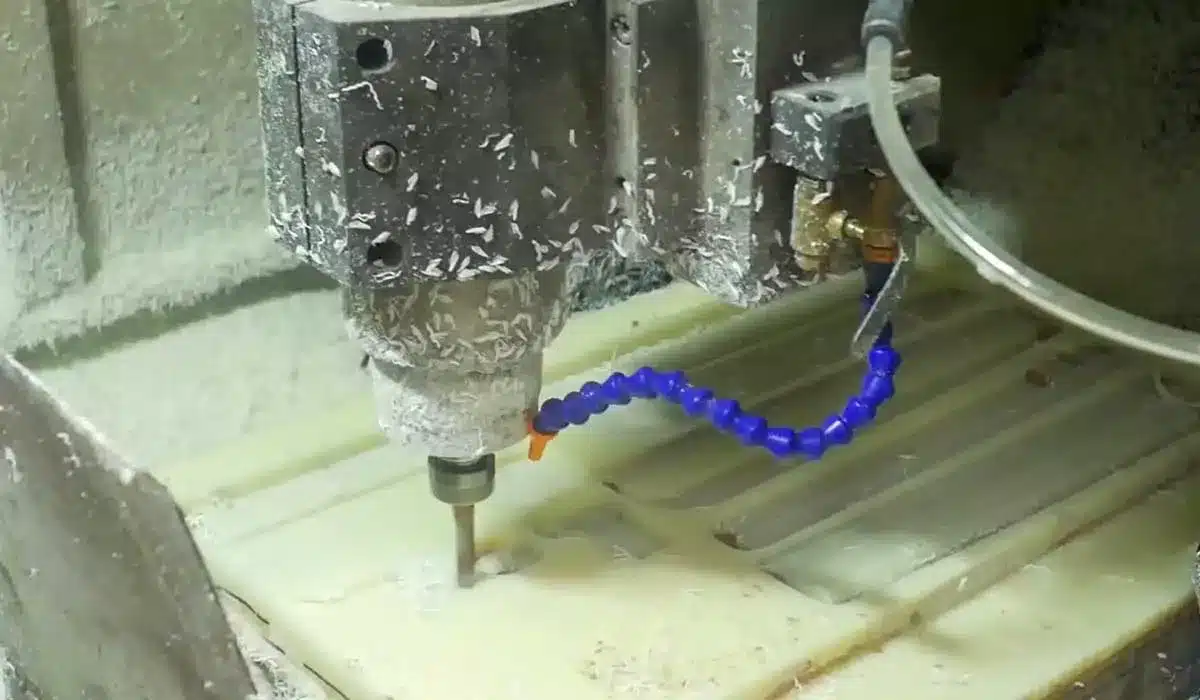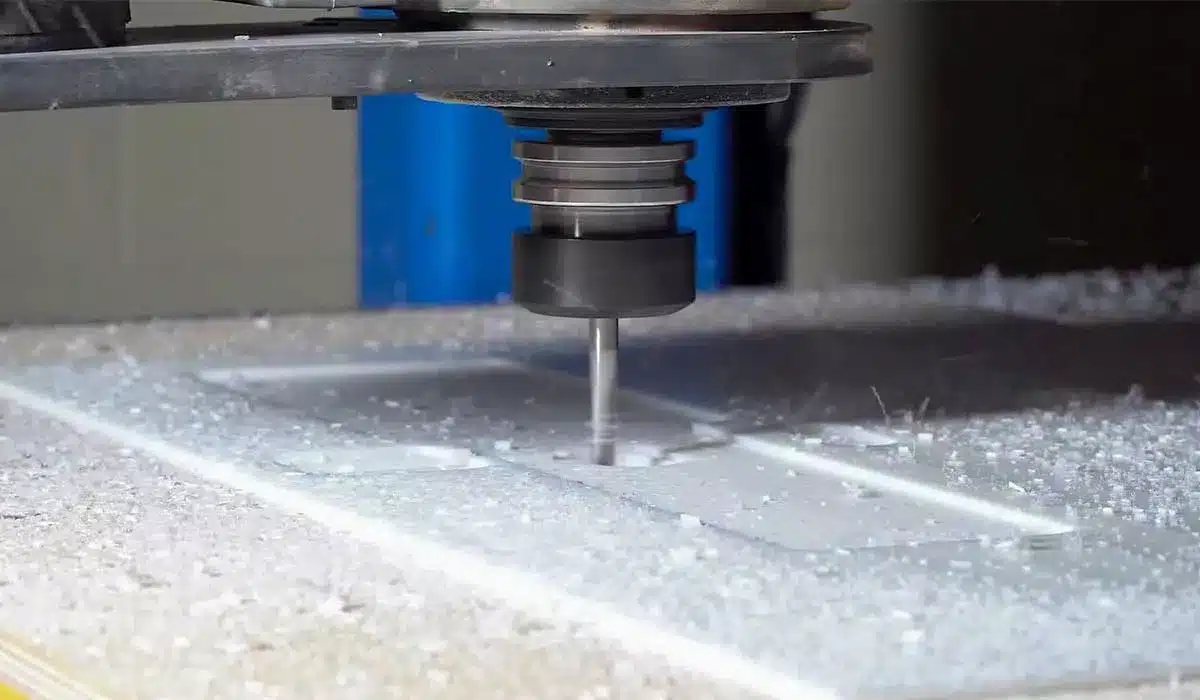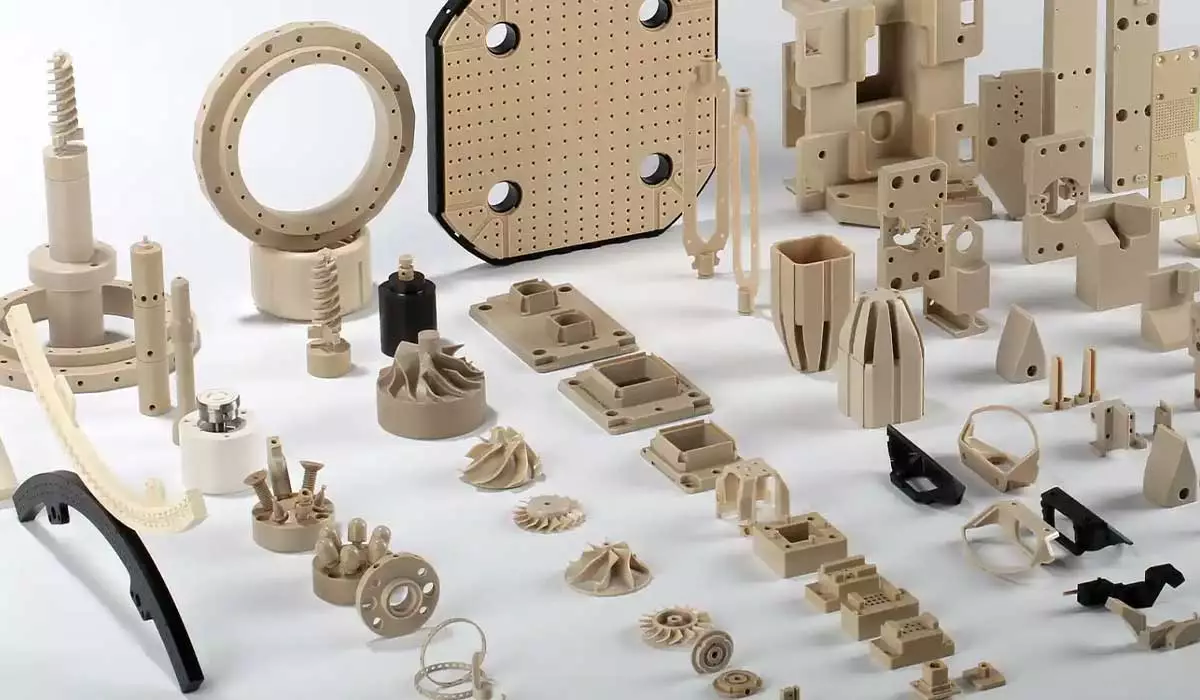Struggling with precision in plastic parts? Inconsistent results can lead to costly rework and delays. Discover how CNC machining plastic offers a reliable solution.
CNC Plastic Machining is the process of using Computer Numerical Control (CNC) machines to shape plastic materials into custom and highly accurate products using programmed instructions. It does have some unique issues, though. First, plastics are soft. Second, plastics are sensitive to heat. And third, plastics wear tools down quickly.
Dive deeper to explore the types, challenges, and solutions in CNC plastic machining.
What is CNC Plastic Machining?
CNC machining plasticinvolves using computer numerical control (CNC) technology to shape plastic materials into precise components. Unlike traditional methods relying on manual operation, CNC for plastic automates the process, ensuring high precision and repeatability. Machines like mills, lathes, and routers, guided by computer programs, cut, drill, or shape plastic workpieces to exact specifications, making it ideal for prototyping and production.
Plastics differ from metals due to their softness, flexibility, and heat sensitivity. Machining plastic parts requires specialized techniques to avoid deformation or melting. For instance, plastic milling machines must use sharp tools with high cutting speeds and low feed rates to minimize heat buildup, while coolants or air blasts dissipate heat. Selecting the right plastic—acrylic, nylon, or PEEK—is crucial, as properties like hardness and chemical resistance vary.
Industries such as aerospace, automotive, medical, and electronics rely on CNC machined plastic parts for their lightweight, corrosion-resistant, and insulating qualities. In medical applications, CNC plastic machining produces surgical instruments and implants requiring biocompatibility. In automotive, it crafts lightweight components for fuel efficiency, while electronics use insulators and housings. The process excels at creating complex geometries and tight tolerances, unachievable with methods like injection molding.
Rapid prototyping is another advantage, allowing quick design iterations. However, costs can rise for large runs, and waste management is a concern. Despite this, CNC plastic machining remains a versatile, efficient solution for producing high-quality plastic parts when paired with expertise in plastics for machining.
CNC Plastic Machining Types
CNC plastic machining encompasses various processes tailored to plastic properties. Each type suits specific applications, leveraging machines like plastic milling machines or lathes optimized for cnc for plastic.
- CNC Milling: Using rotating tools, plastic CNC milling removes material to create slots, holes, and contours. Climb milling reduces heat, ideal for machining plastic.
- CNC Turning: A lathe rotates the plastic while a tool shapes it, perfect for cylindrical parts like bushings. Sharp inserts minimize heat in CNC machining plastic.
- CNC Drilling: Precise holes are drilled with CNC machined plastic, using peck drilling to manage heat and chips in plastic machining.
- CNC Routing: Similar to milling, routing cuts large plastic sheet machining projects, like signage, with high-speed spindles suited for plastics for machining.
Specialized processes like laser or waterjet cutting complement traditional methods but differ in application. Tool selection—carbide or polished-flute tools—enhances CNC plastic outcomes, while coolants improve finishes. Each type demands adjustments for plastic’s softness and heat sensitivity, ensuring quality in machining plastic parts.
The Challenges of Plastics Machining
Machining plastic parts poses unique obstacles due to plastic’s properties, unlike metals. Addressing these ensures quality in CNC plastic machining.
- Heat Sensitivity: Friction melts or warps plastics. Plastic machining uses air blasts or mist coolants to manage heat in CNC for plastic.
- Material Softness: Softer plastics deform, affecting precision. Sharp tools and climb milling in plastic CNC milling improve CNC machined plastic finishes.
- Tool Wear: Abrasive plastics, like filled nylon, wear tools quickly. Carbide tools extend life in plastics for machining.
- Chip Control: Stringy chips clog machines. Chip breakers and air assist evacuation in CNC machining plastic.
- Clamping: Plastics dent easily. Vacuum fixtures or soft jaws secure plastic sheet machining without damage.
Thermal expansion also impacts tolerances, requiring expertise in best machining plastics to optimize CNC plastic processes.
4 Tips for Precision Machining Plastics
Achieving precision in CNC machining plastic demands specific strategies. Here are four tips:
- Choose the Right Tools: Sharp, high-rake tools with polished flutes reduce heat in plastic CNC milling. Carbide suits best machining plastics.
- Optimize Parameters: High spindle speeds, moderate feeds, and shallow cuts prevent melting in CNC for plastic.
- Use Cooling: Air blasts or mist coolants dissipate heat in machining plastic parts, avoiding water for hygroscopic plastics.
- Secure Workpieces: Vacuum tables or soft jaws stabilize plastic sheet machining without deformation.
These ensure accuracy in CNC machined plastic production.
Plastic CNC Machining Parts
CNC machined plastic parts serve industries like medical (implants), automotive (trim), and electronics (enclosures). Aerospace uses lightweight brackets, while consumer goods benefit from custom fittings and prototypes. Precision and versatility make CNC machining plastic essential for complex, high-quality components.
Plastic Materials We Work With
At Zhuanxin Precision, Each suits specific needs in machining plastic parts, offering durability and precision.
| Material | Main Applications | Key Features/Properties |
|---|---|---|
| Acrylic (PMMA) | Displays, signs | High transparency, excellent weather resistance, easy to machine |
| Polycarbonate (PC) | Housings, protective covers | High strength, impact resistance, high temperature tolerance |
| Nylon | Gears, pulleys | Good wear resistance, self-lubricating, high toughness |
| ABS | Prototypes, electronic housings | High strength, good toughness, ease of machining |
| PEEK | Aerospace, medical equipment | Superior mechanical performance, chemical and high temperature resistance |
| POM (Acetal) | Gears, bearings | Low friction, high wear resistance, high stiffness |
| PVC | Pipes, valves | Excellent chemical resistance, flame retardant, cost-effective |
| PP | Containers, medical devices | Lightweight, corrosion resistance, good toughness |
| PE | Food containers, tanks | Excellent impact resistance, good chemical resistance |
| PTFE (Teflon) | Electronic components, seals | High temperature resistance, low friction, non-stick properties |
| PVDF | Chemical piping, pump housings | Excellent chemical resistance, high mechanical strength |
| Ultem (PEI) | Aerospace, medical equipment | High temperature resistance, flame retardant, excellent electrical properties |
| HDPE | Pipes, tanks | Superior chemical resistance, good impact strength |
| LDPE | Packaging, films | Soft and flexible, good chemical resistance |
| PMMA | Transparent covers, light diffusers | High transparency, UV resistance, reliable impact resistance |
Why Choose Zhuanxin Precision Over Other Plastic Machining Companies?
As a top CNC plastic machining manufacturer, Zhuanxin Precision offers expertise, advanced plastic milling machines, strict quality control, fast turnarounds, and competitive pricing, ensuring superior CNC machined plastic solutions.
CNC Machining Plastic FAQs
- What plastics can be machined? Acrylic, nylon, PEEK, and more suit CNC plastic.
- How does it differ from metal? Plastic machining needs sharper tools, cooling.
- Advantages? Precision, complexity in CNC for plastic.
- Tight tolerances? Yes, ±0.005 inches in CNC machining plastic.
- Material choice? Depends on strength, heat needs for best machining plastics.
CNC plastic machining crafts precise parts across industries. Challenges like heat and softness are met with expertise, making it a versatile solution for innovative CNC machined plastic components.






